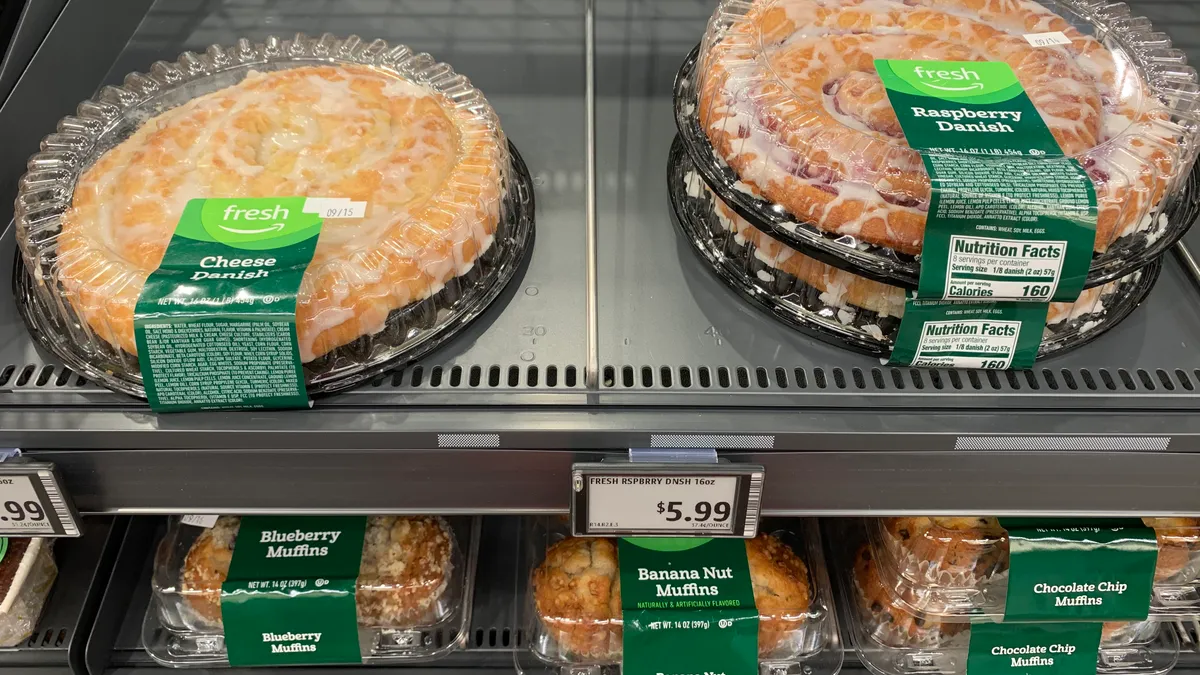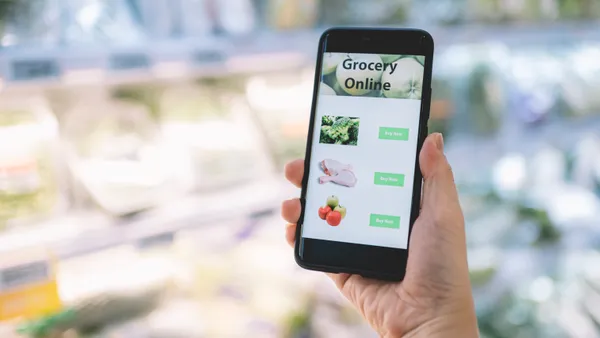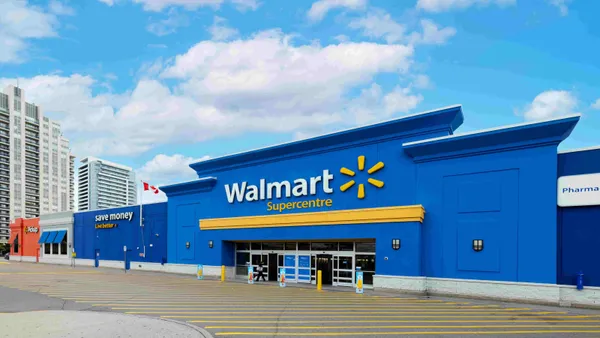Dive Brief:
- Private label sales are poised to accelerate after a disappointing 2020 thanks to continuing innovation, e-commerce potential and consumers’ growing willingness to try new brands, according to a webinar presentation by ingredients supplier Kerry and NielsenIQ.
- Two-thirds of consumers have shifted their buying habits in recent months, while the percentage of newly budget-conscious consumers doubled between September and December, according to NielsenIQ.
- Private label accounts for just 4% of grocery e-commerce sales, but that number has quadrupled over the past two years, indicating an opportunity for retailers to capitalize on rising omni-shopping habits, Kerry and NielsenIQ executives noted.
Dive Insight:
Last year, for the first time in a decade, sales growth of national brands outpaced the growth of private labels, according to NielsenIQ data. Store brand manufacturers like TreeHouse Foods struggled to shift their supply chains amid demand spikes, while major brands were able to pare down their assortment and focus on best-selling items.
Consumers also began buying more unique treats and ingredients that would help them replicate the experience they were missing at cafes and restaurants — an area where private label is “less developed,” said Kara Sheesley, vice president of retail engagement at NielsenIQ.
The narrative of private label outpacing national brand growth is poised to resume this year, however, as retailers and suppliers face a more normalized supply chain environment along with new consumer dynamics.
NielsenIQ has tracked consumers’ attitudes toward spending over the past year, categorizing them into two groups: “constrained” and “insulated.” According to the firm, the percentage of shoppers that fall into the former category has grown recently. “Newly constrained” consumers increased from 23% to 46% between September and December, indicating a higher percentage of shoppers that are closely watching their budgets as uncertainty and concerns over unemployment loom.
Both constrained and insulated shoppers buy private labels, with insulated shoppers gravitating more toward new and innovative products. But tighter budgets tend to play to the benefit of store brands, which have extended across store categories over the years and have increased the quality and sophistication of their offerings. Eighty percent of consumers say they’re restructuring their spending habits, according to NielsenIQ.
“A lot of consumers are really fundamentally saying, ‘Hey, I need easier access to more value, and quite honestly, I want a greater variety of quality and value products,’” Sheesley said.
Online shopping is shaping up to be the next major merchandising opportunity for private label. Two-thirds of consumers say they’re shopping both in stores and online, Sheesley said, but they often feel there’s a disconnect between the two channels. Retailers have control over their online platforms and can drive sales, she noted.
“Retailers own that space, and so they actually have more control over what your eye is taken to, which also means that it creates a great opportunity for retailers to support the growth of their own brands.”
Kerry, a leading supplier of ingredients across food and beverage companies, cited a proprietary survey of 1,500 private label consumers, noting that pricing, safety and variety are top attributes they’re looking for.
The firm divided store brand consumers into two groups — “practical traditionalists” and “adventure seekers.” Practical traditionalists tend to focus more on price, convenience and mainstream categories, while adventure seekers are more experimental, less price-sensitive and tend to gravitate toward emerging categories like plant-based foods and functional beverages.
Sarah Miller, marketing insights manager with Kerry, said the two groups reinforce the need for companies to “optimize” the store brand products they have as well as push into new categories. Over the past year, retailers like Kroger have expanded their selection of plant-based private label offerings. Albertsons recently unveiled a line of sustainable wines and has also rolled out compostable nonfood items under its Open Nature brand.
"Innovation can come in different forms —- from true newness to the market to optimization of current products and categories. There's potential to innovate from both ends here," Miller said.













